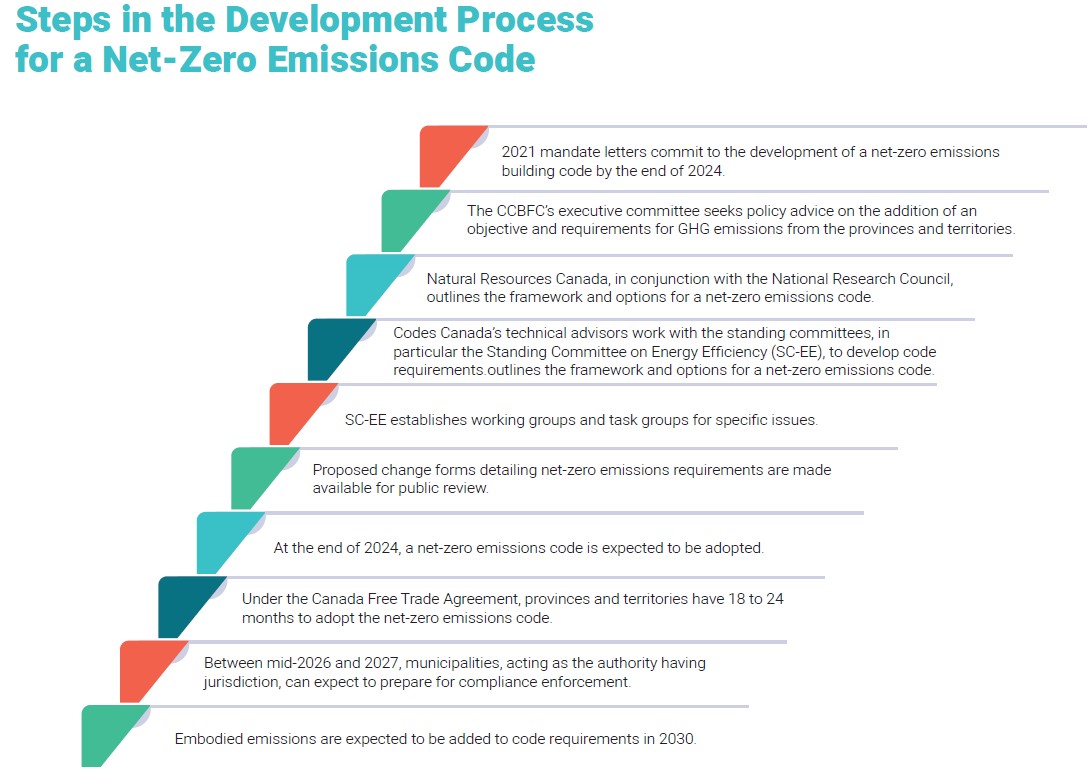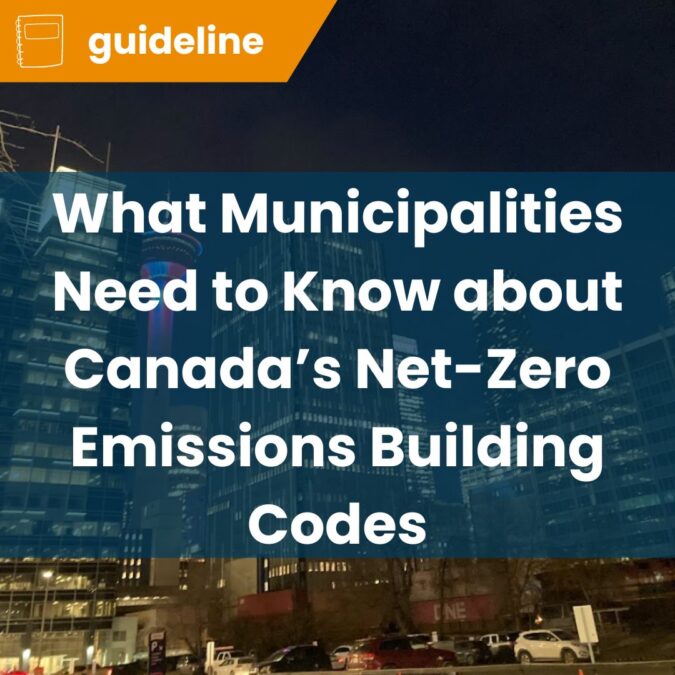Author/Contributor: Efficiency Canada, Carleton University, LC3
Alberta Context: There are some actions that are available and relevant to Alberta municipalities in this document.
Summary:
Some municipalities in Alberta have already committed to supporting the transition to low-carbon buildings. Edmonton will require City owned buildings to report embodied emissions as early as 2025. The City of Edmonton has also developed a Building Energy Benchmarking program to help large buildings reduce their building energy use and reduce community emissions.
Read the guide “What Municipalities Need to Know about Canada’s Net-Zero Emissions Building Codes” to learn more about what your municipality can do before the code arrives (expected to be available by 2025).
Climate enthusiasts, building code practitioners, and municipal staff are encouraged to share sections of this guide with decision-makers, particularly municipal officials, to help inform buildings sector policy and practices and accelerate Canada’s net-zero future.
To view the report, fill out the short form and it will immediately direct you to a page where the guide is available for free download.
Municipalities require tools and support to fulfill their decarbonization role in the building sector, starting with new construction. The primary tool to regulate the construction of new buildings are building codes.
This municipal guide includes details on tiered energy codes, the benefits of ambitious tier adoption, and using the new codes for achieving net-zero emissions by 2050. Learn how your municipality can use model code adoption to reach your net-zero goals, capture a range of energy and non-energy benefits, and lay the foundation to reach net-zero emissions.
Key topics:
- Stringent building energy codes, like the 2020 model codes, are a near-term transformational action local governments can use to achieve their climate change targets.
- The national building codes recently issued by Canada are tiered, offering a progressive pathway for enhancing building performance with each tier.
- The tiered code framework offers the flexibility local governments need to accelerate the energy performance of buildings.



